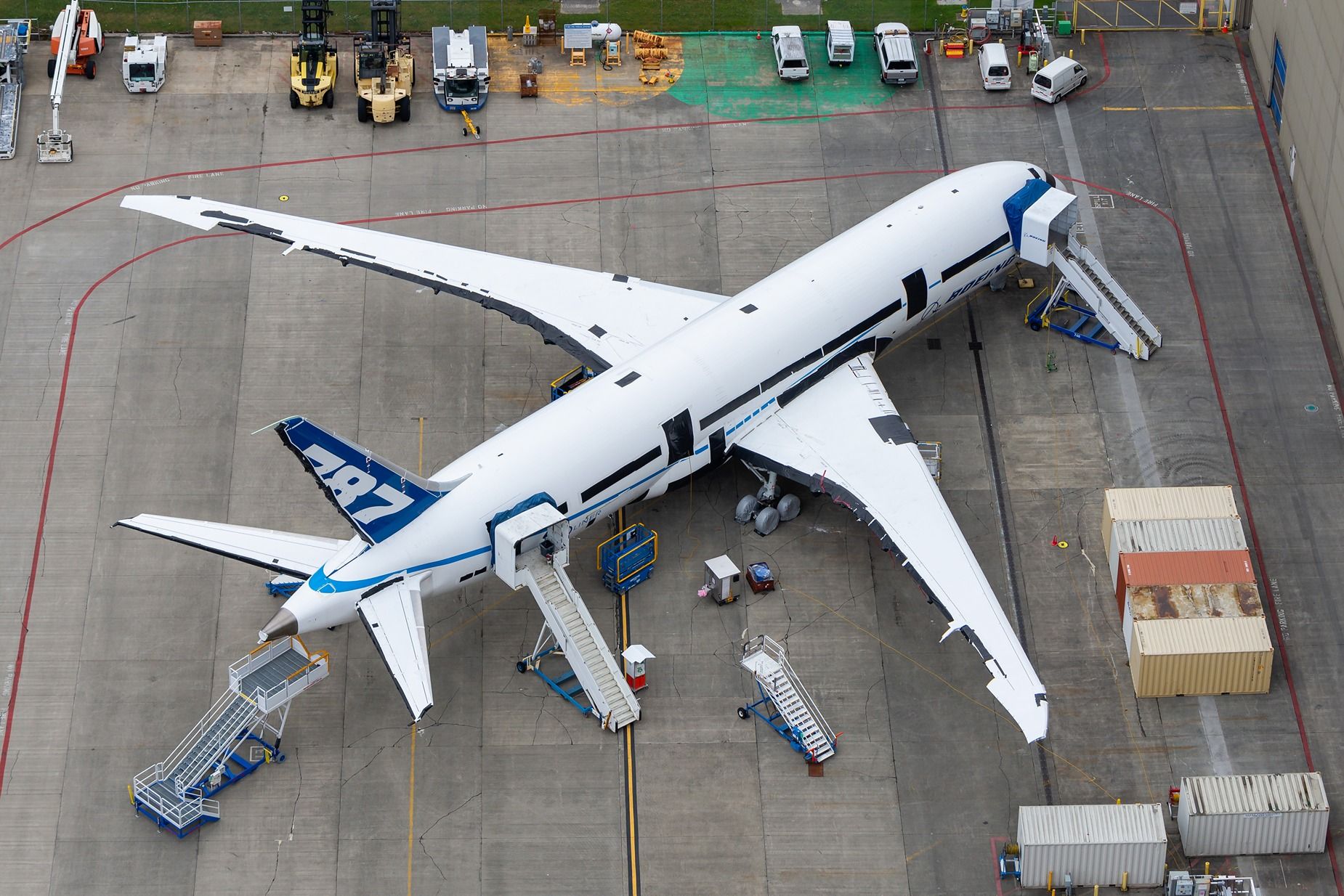This post was brought to you by Simple Flying.
- C&L Engine Solutions will sell parts from a Boeing 787-8 they recently acquired.
- Boeing 787 aircraft are entering a heavy maintenance cycle, spurring demand for parts.
- The aircraft, which will become the third-ever dismantled commercial 787-8, was supposed to become a charter aircraft.
C&L Engine Solutions, a subsidiary of C&L Aviation Group, announced that it would sell parts from a newly acquired Boeing 787-8 aircraft powered by two General Electric (GE) GEnx engines. This would be the third-ever Boeing 787 to be dismantled in the past year.
Heavy maintenance for global Boeing 787s
According to the company, it will dismantle the aircraft, whose serial number (SN) is 35507, in Roswell, New Mexico. The location is home to the Roswell Air Center (ROW), where many airlines send their aircraft to be permanently retired or placed into temporary storage.
Nevertheless, C&L Engine Solutions said that it would transport the aircraft’s parts to Wichita, Kansas – incidentally, where Spirit AeroSystems, a Tier 1 Supplier for Boeing, builds new 787 forward fuselages and engine pylons – where the parts will be sold on the second-hand market. The company noted that it was working with Original Equipment Manufacturers (OEM) to utilize these parts to supplement their inventories.
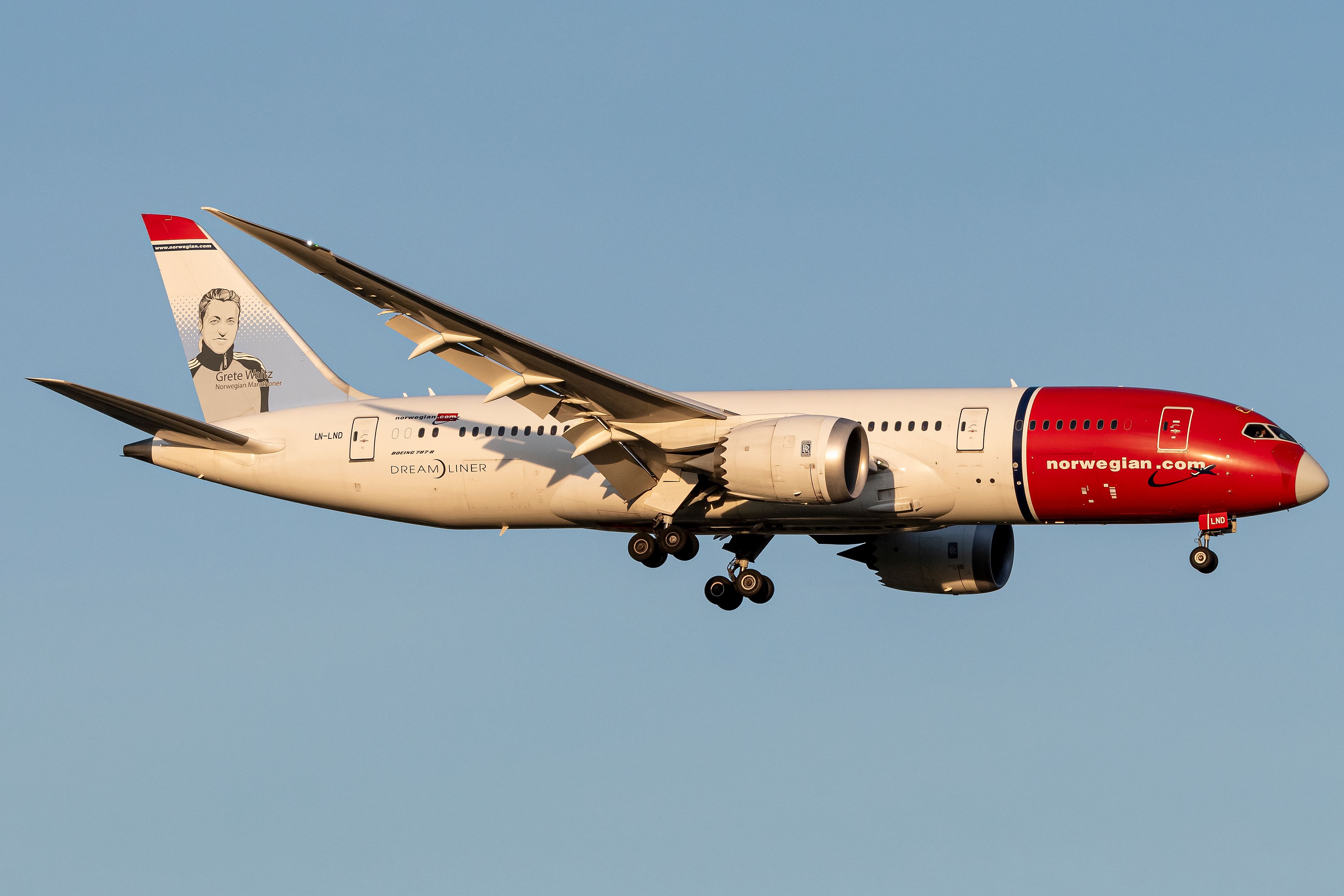
Tim Brecher, the President of C&L Engine Solutions, highlighted that the timing of this project was perfect since the 787 fleet is hitting the 12-year mark from the first deliveries. As a result, the global Boeing 787 fleet is entering a busy schedule for heavy maintenance, with Brecher stating that there has been a shortage of spare parts, which was only exacerbated by supply chain challenges.
Brand-new Boeing 787
According to ch-aviation data, Boeing delivered the aircraft to Crystal Luxury Air, later renamed to Crystal AirCruises, a subsidiary of Crystal Cruises, which was planning to operate it as a VIP charter aircraft. In addition to the 787, the company acquired a Boeing 777-200LR and Bombardier Global Express XRS.
However, the site did not indicate how many flight hours (FH) or flight cycles (FC) the airframe has accumulated since its delivery in March 2017. Meanwhile, planespotters.net data showed that it spent seven years in storage at Victorville Southern California Logistics Airport (VCV) before it was moved to ROW on March 3, 2024.
In October 2021, Genting Hong Kong, the parent company of Crystal Cruises, announced that it agreed to sell the Boeing 787-8 for $25 million. The Hong Kong-based company said that the decision was made to dispose of non-core assets, which had enabled it to shore up its liquidity in the short term, especially during the pandemic.
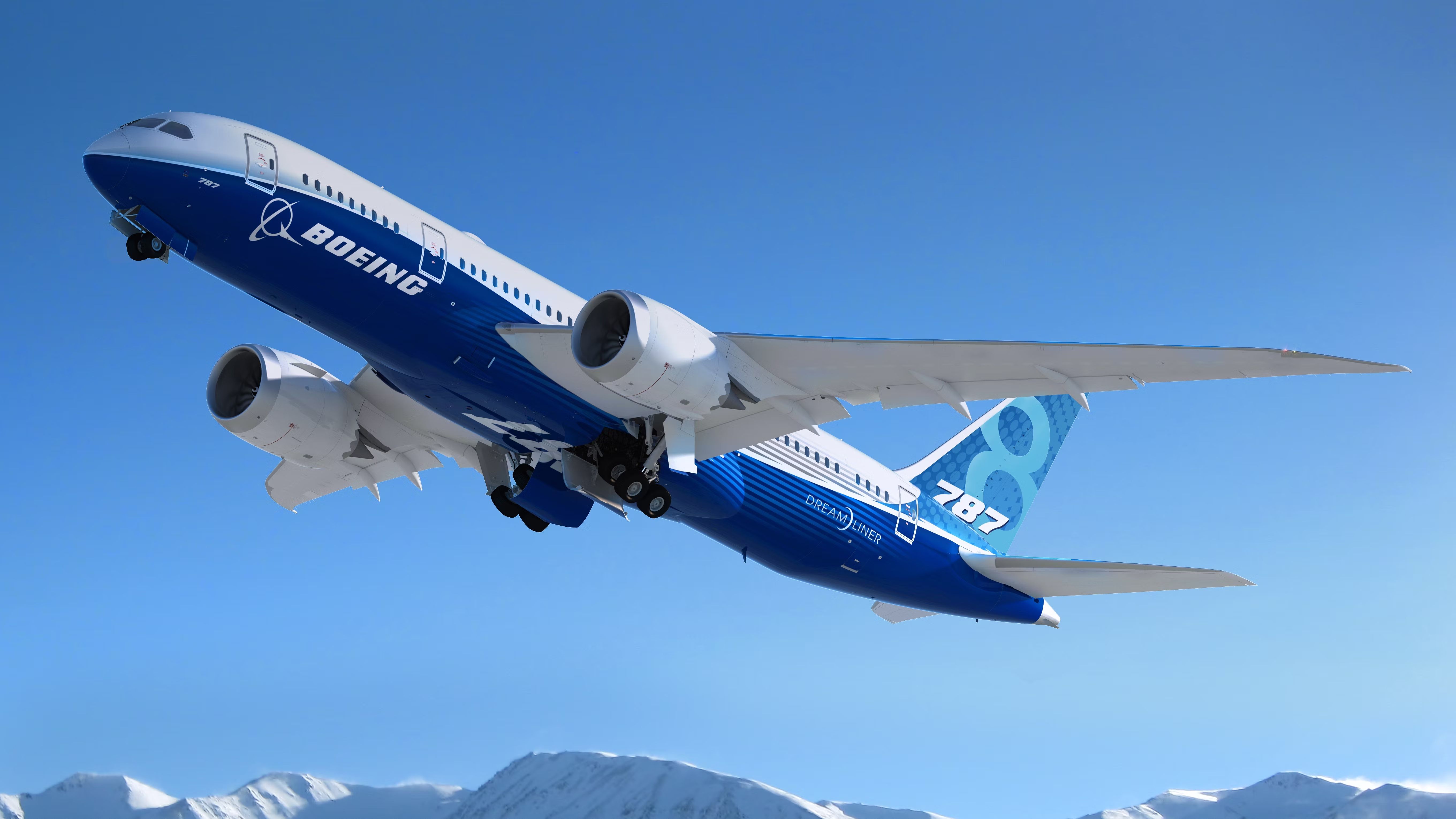
The purchase of the transaction resulted in a $37 million loss, considering the net proceeds of the sale and the carrying value of the aircraft, which was deemed to be $61.9 million on September 30, 2021. Still, the company’s filing on the Stock Exchange of Hong Kong (HKEX) stated that the terms of the sale were “fair and reasonable.”
Terrible teens
An aviation value analyst from AviationValues told Simple Flying that the Boeing 787-8 is one of the few early-built 787-8s that industry insiders have called the ‘Terrible Teens,’ a reference to their line numbers (LN). The LN of this Boeing 787-8 is 17.
The analyst stated that because of the various fixes that Boeing had to make on the aircraft once they were delivered to customers, these 787-8s were significantly overweight, limiting their performance, including the distance they could fly.
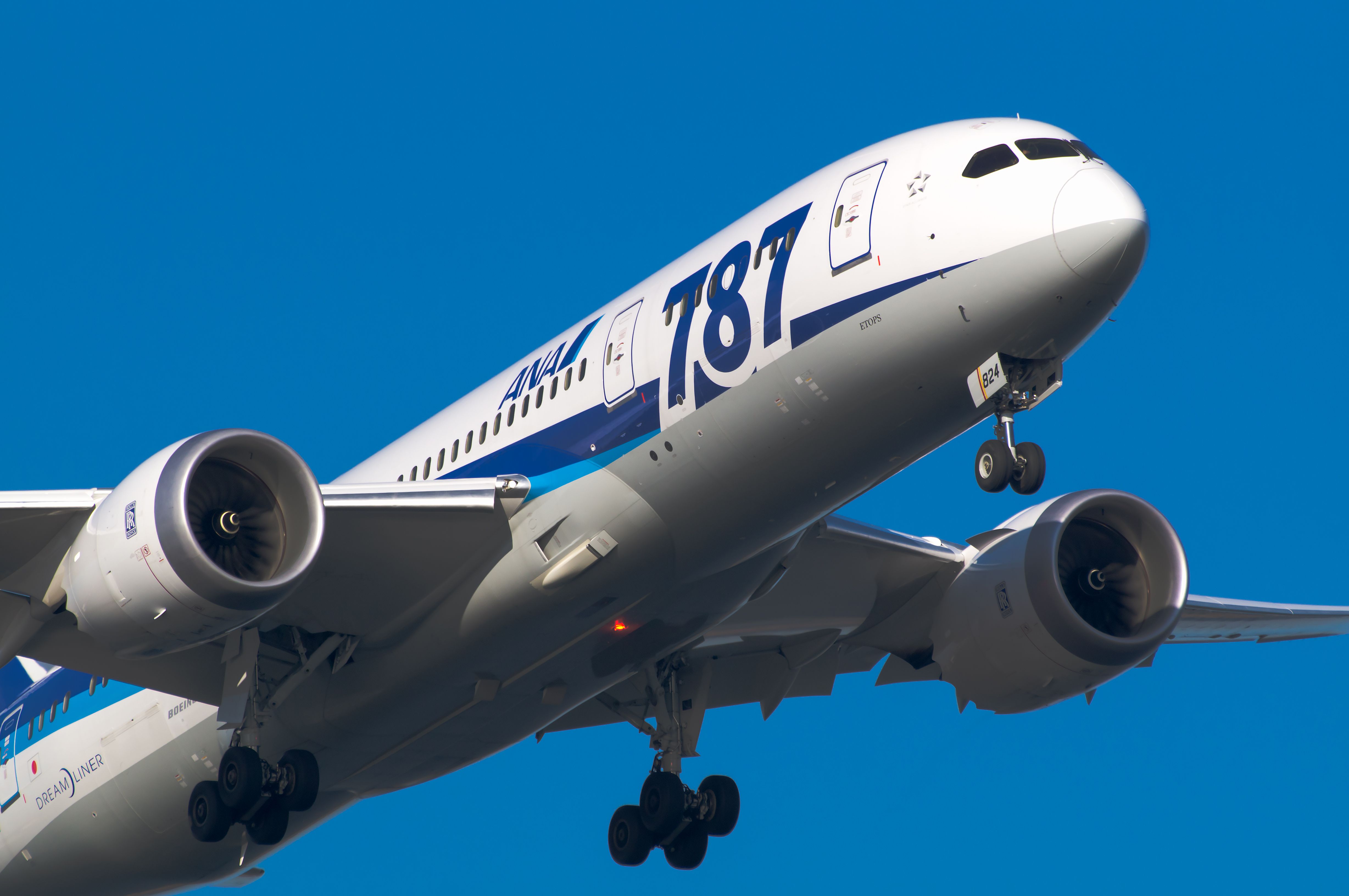
As a result, few operators wanted to purchase these assets, which is why it was rumored that these 787-8s were sold at significant discounts compared to production-standard Boeing 787-8s. According to the analyst, the 787-8 that will be dismantled at ROW was sold significantly below the then-perceived market value of around $57 million for production-standard 787-8s of similar age.
“While MSN 35507 has clearly underperformed as a flyer, its value is in its GEnx engines and other parts. There are severe constraints on the availability of maintenance slots, and turnaround times for engines undergoing shop visits have increased significantly as the market recovered post-pandemic.”
Thus, spare parts, particularly serviceable engines with significant usable maintenance life, are in strong demand on the second-hand market. The analyst concluded that the buyers of this 787-8 are attempting to cash in on the strong demand for parts.
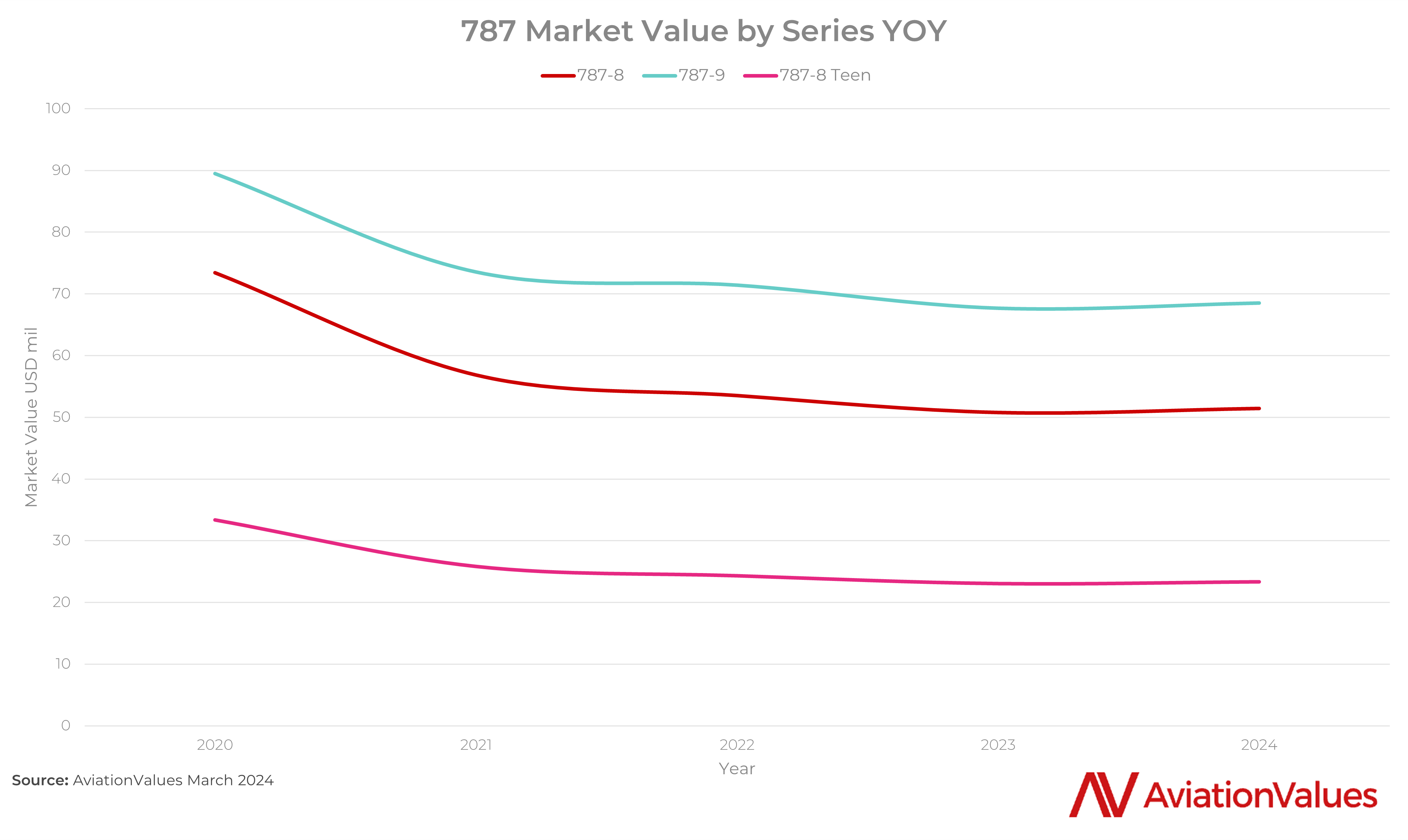
GEnx advantage
Recently, Rolls-Royce Trent 1000 problems have begun propping up again. For example, Air New Zealand announced on March 12 that it would pause its Auckland Airport (AKL) – Chicago O’Hare International Airport (ORD) route due to the shortage of serviceable Rolls-Royce Trent 1000 Engines.
Explaining the situation, Air New Zealand noted that aircraft engines normally require heavy maintenance, for which they are taken off the aircraft and sent to the OEM for an inspection after 1,000 cycles. However, during regular inspections, the airline’s engineers discovered that the engines needed to be maintained every 750 to 850 cycles, while Rolls-Royce was unable to provide the carrier with spare or replacement engines. As a result, the airline had to reduce the number of flights operated by its Boeing 787 fleet.
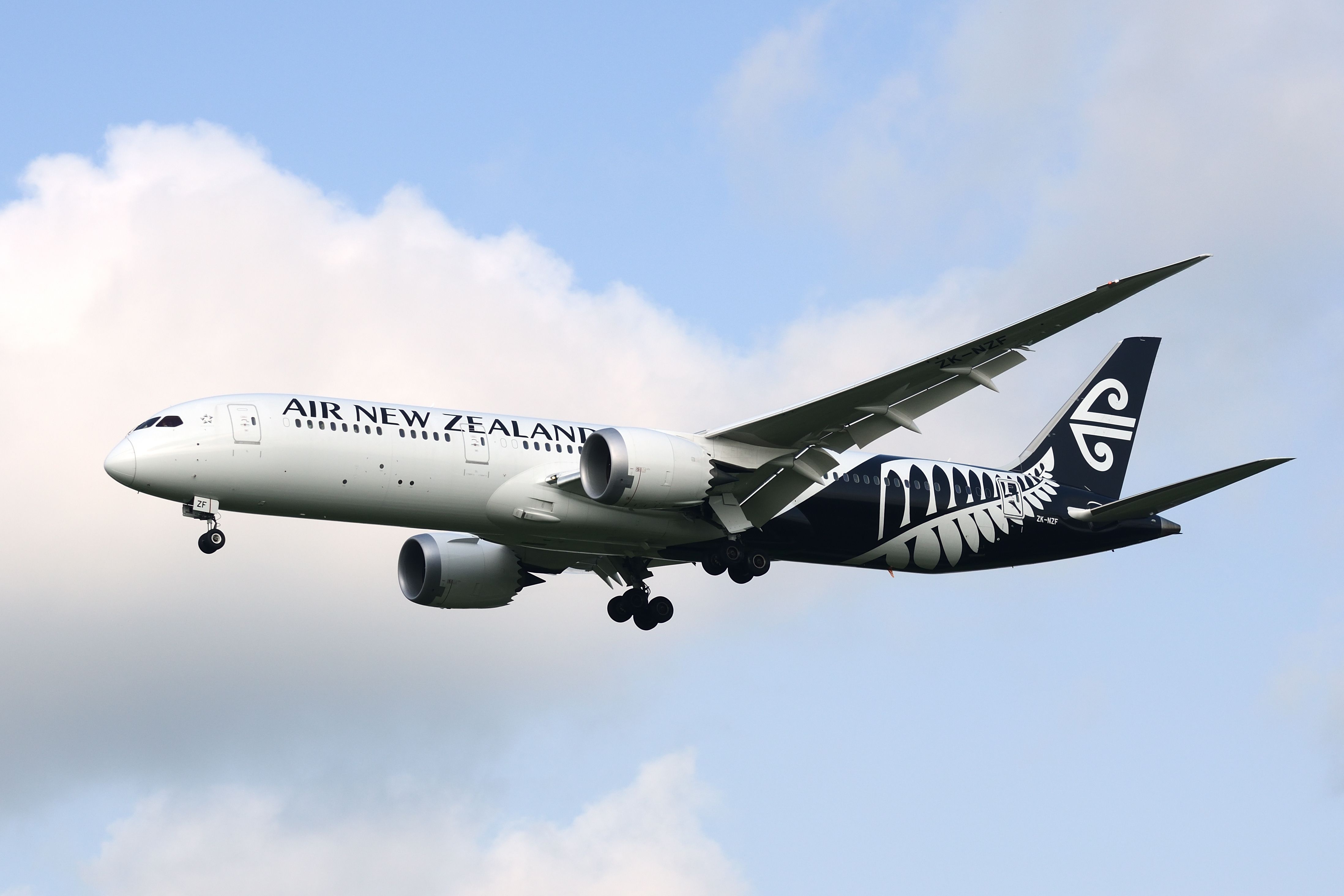
All 14 Air New Zealand Boeing 787-9s are powered by Rolls-Royce Trent 1000 engines. However, the airline still has eight 787s on order, namely two 787-9 and six 787-10s. According to Boeing’s orders & delivery filings, the engines on the eight aircraft will be the GEnx, marking another customer that has shifted its engine supplier for the 787.
Third dismantled 787
The latest Dreamliner will become the third Boeing 787 to be dismantled in the past year. In February 2023, EirTrade Aviation, an Ireland-based company, announced that it would dismantle two Boeing 787-8 aircraft that were retired from service. The company said that the two 10-year-old 787-8s would be dismantled off-site from its facilities in Ireland, namely in Prestwick, Scotland. The aircraft were formerly operated by Norwegian Air, which sent them to storage at Glasgow Prestwick Airport (PIK) in 2019.
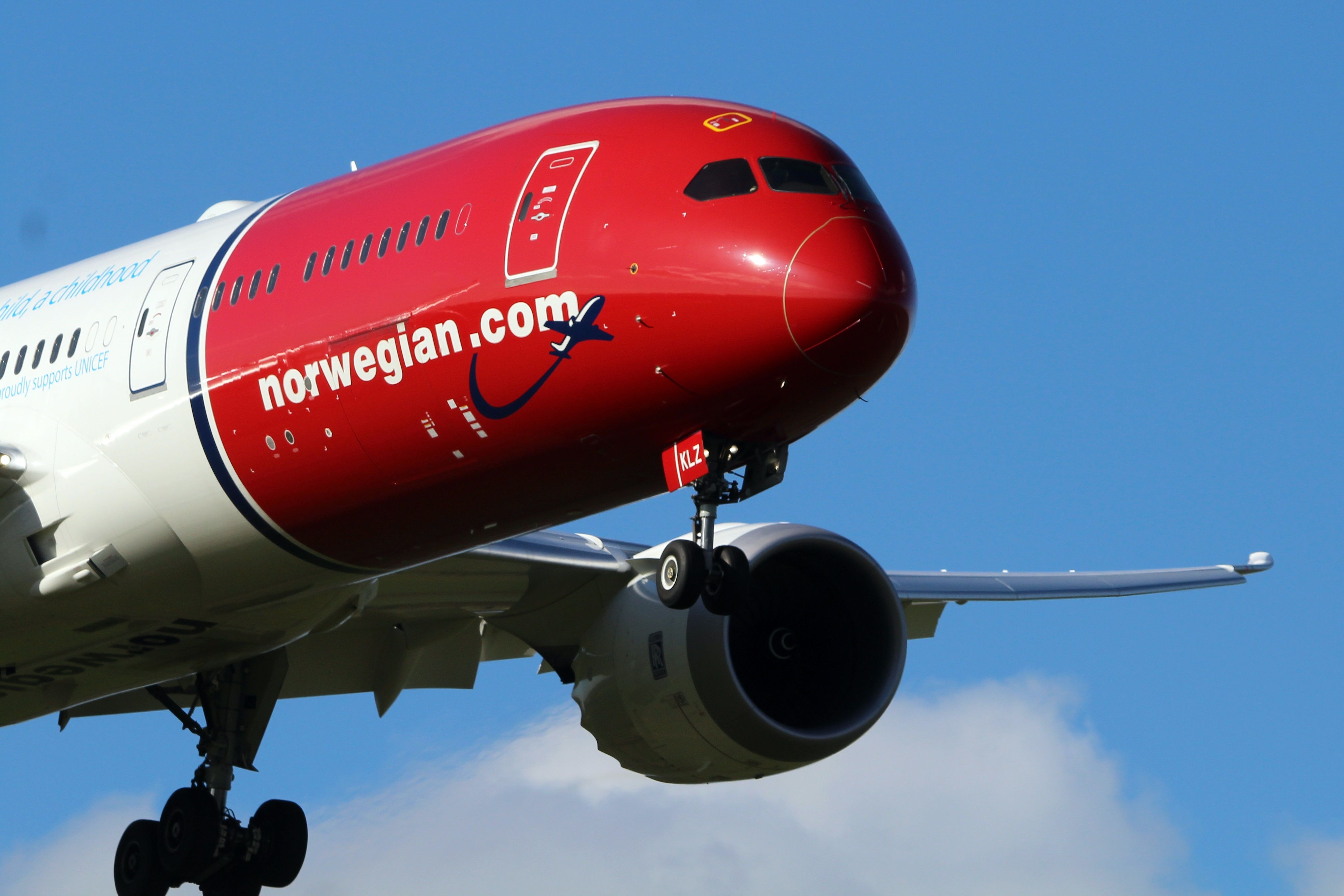
Boeing has also dismantled one airframe, a Boeing 787-8, with the manufacturer serial number (MSN) 40694. However, it was a testbed and was never intended to be operated as a commercial aircraft, unlike the three Boeing 787-8s that have now been scrapped.
This post was brought to you by Simple Flying. Written By Rytis Beresnevičius.


